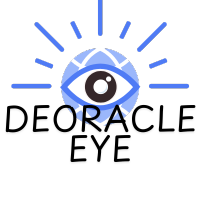Herbal Remedies: Uses and Advantages by Livy-Elcon Emereonye

Herb Garden, The Herb Garden is a series of smaller gardens meant to delight the senses and illustrate the historic and contemporary importance of herbs. Trees and shrubs border the entire garden and capture the herbal fragrances given off by a myriad of herbal plants within the garden.Specialty gardens within the Herb Garden include the English Courtyard, Tea, Touch and Smell, Knot, Sage and Thyme, Medicinal, Dye, Kitchen, and Sinister Gardens
The practice of herbal medicine offers us diverse ways to connect with nature. Our natural environment provides us the tools we need to heal ourselves. Perhaps the remedy to your ailments is right underneath your nose!
Humanity’s relationship with plants is as old as human history. Long before the development of modern pharmaceuticals, our ancestors turned to the natural world for healing and sustenance. From the leaves and roots of common weeds to the bark of majestic trees, herbs have been the foundation of medicine across cultures and traditions. Today, even with remarkable advances in medical science, herbal remedies continue to play a significant role in healthcare, either as primary solutions or complementary aids.
Herbal remedies are preparations made from medicinal plants or plant extracts used to prevent, alleviate, manage or treat illnesses. They may involve using the whole plant or specific parts—leaves, roots, seeds, flowers, or bark—prepared in different forms such as teas, tinctures, capsules, ointments, oils, or powders. While some are used for common everyday ailments, others support chronic disease management or general well-being.
Herbal remedies can be used in different ways and conditions including but not limited to: Treatment of common ailments:Herbal medicine is often the first line of defense against everyday health challenges. Ginger and garlic, for instance, are widely known for their immune-boosting and antimicrobial properties, making them effective against colds, flu, and infections. Chamomile tea calms the stomach and aids digestion, while peppermint is a natural remedy for bloating and indigestion.
Chronic disease management:
Certain herbs provide long-term support for managing chronic health conditions. Bitter melon and fenugreek seeds help regulate blood sugar in diabetes, while garlic and hawthorn are traditionally used to support heart health and blood pressure control. Milk thistle protects and rejuvenates the liver, an organ essential for detoxification.
Immune system enhancement:
Many herbs are known to strengthen the body’s natural defense system. Echinacea, astragalus, and elderberry are popular immune tonics that help the body resist infections and recover faster from illness.
Mental and Nervous System Support:
The growing interest in natural approaches to mental health has put herbs such as valerian root, passionflower, and ashwagandha in the spotlight. These plants help reduce stress, anxiety, and insomnia, while ginkgo biloba and gotu kola are often used to enhance memory and cognitive performance.
Skin and hair care:
Topical application of herbs has been practiced for centuries. Aloe vera soothes burns and accelerates wound healing, while tea tree oil fights fungal and bacterial infections. Rosemary and hibiscus are celebrated for their ability to stimulate hair growth and nourish the scalp.
Reproductive health:
Herbal remedies also address gender-specific concerns. Black cohosh and red clover help ease menopausal symptoms such as hot flashes, while maca root supports fertility and stamina. Saw palmetto is used by men to promote prostate health.
Herbal remedies offer several advantages such as:
Embracing a natural and holistic approach:
Herbal remedies often work in harmony with the body’s natural processes, aiming to restore balance rather than merely suppress symptoms. This holistic approach considers the individual’s overall physical, mental, and emotional health.
Having fewer side effects:
When prepared and used properly, herbs generally have fewer adverse effects compared to synthetic drugs. Their natural composition is often more compatible with the human body.
Locally available, accessible and affordable:
In many parts of the world, especially in rural communities, herbs are the most accessible form of healthcare. They can be grown in home gardens or sourced from local markets at relatively low cost.
They have cultural acceptance and traditional usage:
Herbal medicine is deeply rooted in culture and tradition, passed down through generations. This makes it widely trusted and accepted, especially in societies where traditional healers play important roles.
Wide range of applications:
Herbs can be consumed as teas, decoctions, powders, or incorporated into food. They can also be applied externally as poultices, ointments, or oils, offering a wide range of therapeutic applications.
They have preventive health benefits:
Beyond treating illness, many herbs act as preventive agents. Rich in antioxidants, vitamins, and minerals, they protect cells from damage, slow aging, and strengthen the body against lifestyle-related diseases.
They can serve for complementary purposes to conventional medicine:
Herbs can be integrated with conventional treatments in what is known as integrative or complementary medicine. For example, ginger is often recommended alongside chemotherapy to ease nausea, and turmeric supplements may be used to reduce inflammation in patients with arthritis.
While the advantages of herbal remedies are notable, they are not without risks. Misidentification of plants, improper preparation, overdosing, and harmful interactions with prescription drugs can cause serious health issues. For example, St. John’s Wort, commonly used for depression, can interfere with the effectiveness of certain medications, including contraceptives and blood thinners.
Therefore, professional guidance is important when using herbs, especially for individuals with chronic conditions, pregnant women, or those on prescription drugs.
The need for proper research, standardization, and regulation of herbal products cannot be overstated.
Herbal remedies remain a vital aspect of healthcare globally, bridging the gap between ancient wisdom and modern medicine. Their uses span from managing minor ailments to supporting chronic disease treatment, enhancing immunity, and promoting general well-being. Their advantages—natural origin, affordability, cultural acceptance, and preventive health benefits—make them indispensable, especially in resource-limited settings.
Yet, the best results come when herbs are used with knowledge, respect, and caution. As science continues to study and validate the properties of medicinal plants, herbal remedies will increasingly serve not only as a link to our past but also as a pathway to healthier futures.
It is important we promote and practice rational herbal medicine use. I support Herbal Medicine because, my Grand Father died at the age of 96, without western medicines. My mother died at 98, without relying on Western Medicines, my own father died at 96, though he was a licensed local/ Village Chemist Store owner, used mostly herbs. We in Africa are blessed so much but misplace our priorities. My Parents used Oregano, Nchu Onwu for so many things. I urge us to look back to our roots, under a well educated professional Pharmacist like this writer.
Dr. Livy-Elcon Emereonye writes from Lagos Nigeria and is available at the following number: +234 803 3922 445

